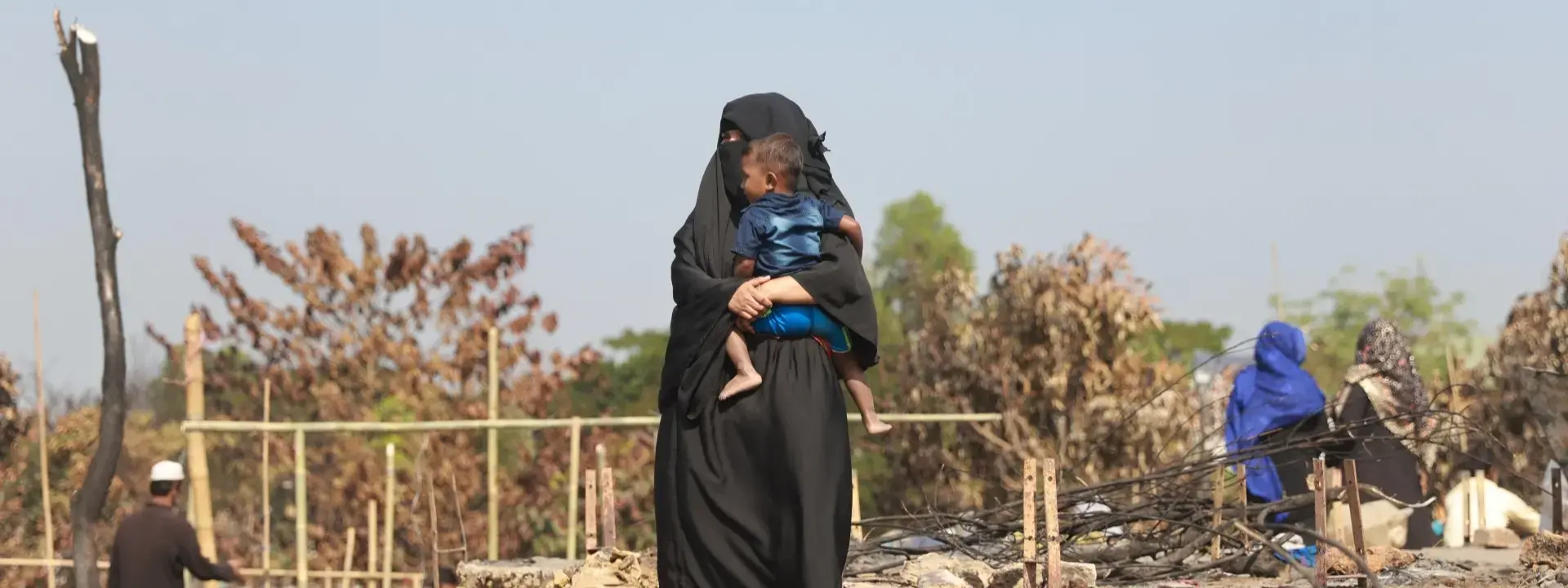Bangladesh hosts one of the world’s largest refugee populations and is also highly vulnerable to climate-related disasters. During natural disasters and other emergencies, sexual and reproductive health needs are often overlooked – yet these needs are often staggering. Without access to reproductive health services, women face an increased risk of life-threatening complications. Many women also lose access to family planning, exposing them to unwanted pregnancies in perilous conditions. Women and young people also become more vulnerable to sexual violence and exploitation and the hygiene needs of women and girls are often neglected.
In Cox’s Bazar, more than one million Rohingya refugees remain in camps, eight years since they were forced to flee their homes in Myanmar. More than half of the displaced are women and girls, living in conditions that leave them reliant on humanitarian assistance. Most refugees reside in overcrowded, temporary shelters that offer little privacy and are highly vulnerable to the impacts of climate shocks – including cyclones, fires and landslides – and the challenges of a protracted crisis. Shrinking humanitarian funding has stretched basic services to their limits, while rising insecurity within the camps restricts mobility and exposes women and girls to heightened risks of violence.
UNFPA works closely with government, donors, UN agencies, community-based organizations, and other partners to ensure a comprehensive and inclusive response to women and girls during emergencies across Bangladesh. We deploy hygiene supplies, obstetric and family planning supplies, trained personnel, and other support to vulnerable populations, including persons with disabilities and gender-diverse groups, and work to ensure the needs of women, young people, and communities are served through both emergency and recovery phases.


